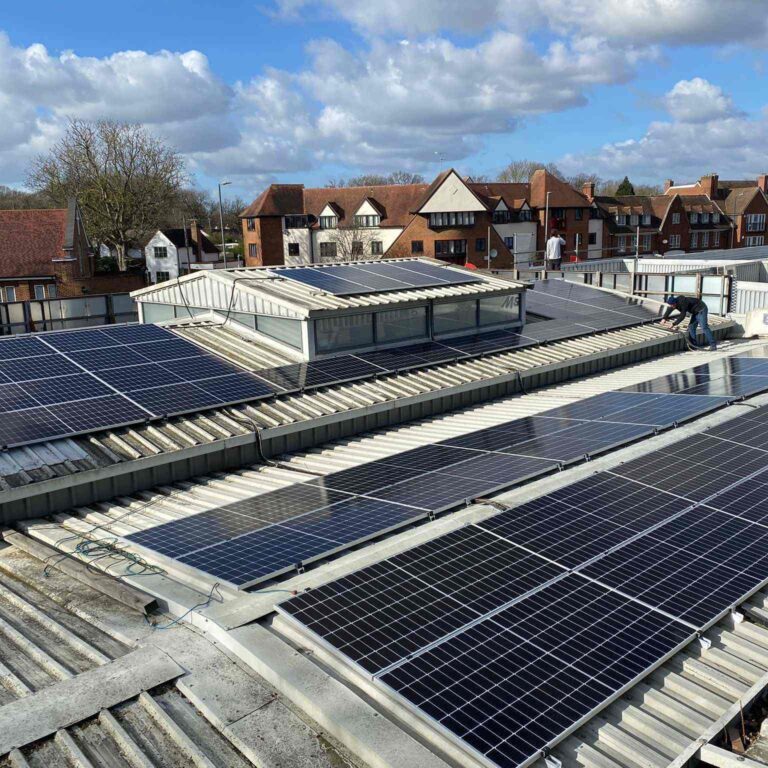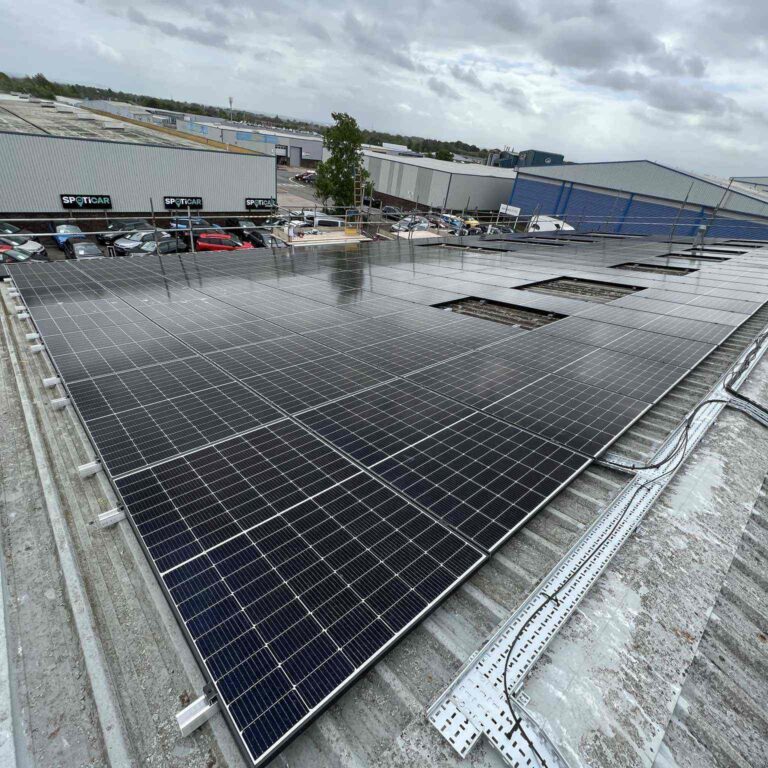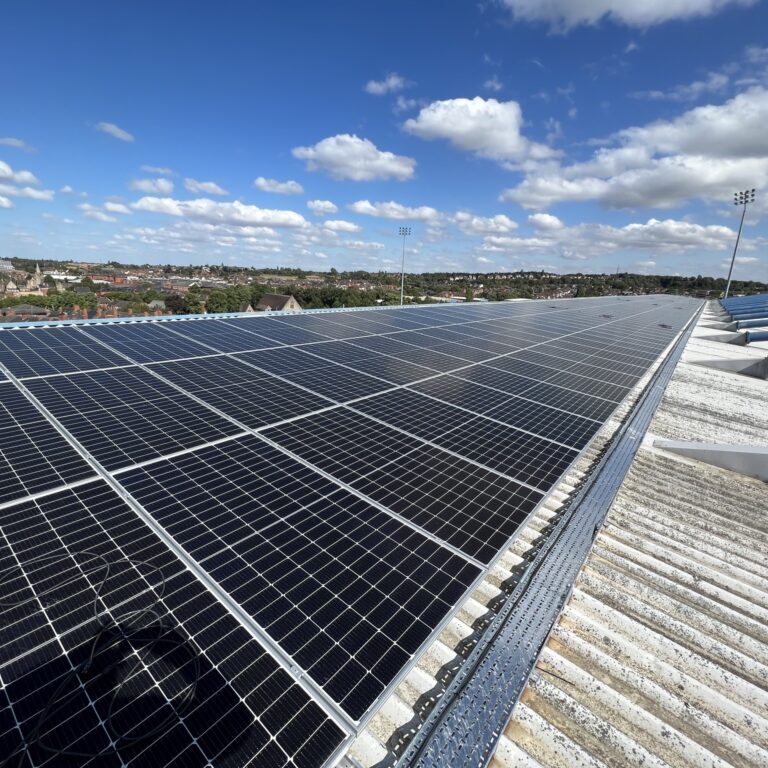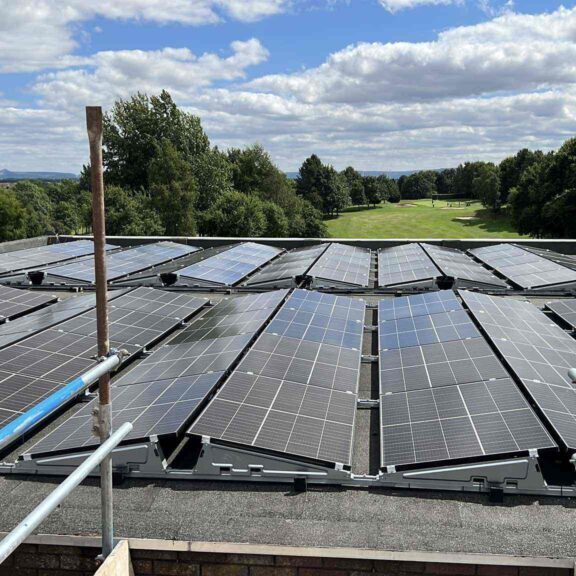In today’s rapidly changing business landscape, energy consumption is a critical factor that can significantly impact your bottom line. With the rise of renewable energy, many UK companies are faced with the decision of whether to stick with traditional energy sources or invest in commercial solar. This article will explore the benefits and drawbacks of commercial solar compared to traditional energy, helping you determine the best option for your business.
Understanding Commercial Solar Energy
Commercial solar energy refers to the use of solar panels to generate electricity for business operations. Solar panels capture sunlight and convert it into electricity, which can be used to power various business functions. The UK government’s commitment to reducing carbon emissions has led to increased incentives and support for businesses investing in commercial solar. As a result, more UK companies are exploring commercial solar as a viable alternative to traditional energy sources.
The Financial Benefits of Commercial Solar
One of the primary advantages of commercial solar is the potential for significant cost savings. Once the initial investment in solar panels is made, the ongoing costs are minimal compared to traditional energy. Solar panels typically have a lifespan of 25 to 30 years, during which they can generate substantial savings on electricity bills. For UK businesses facing rising energy costs, commercial solar provides a hedge against these increases, allowing for more predictable and stable energy expenses.
Moreover, UK businesses can benefit from various incentives, such as the Smart Export Guarantee (SEG), which pays companies for excess electricity they generate and export to the grid. This additional revenue stream can further enhance the financial viability of commercial solar.
Long-Term Investment vs. Short-Term Costs
While the long-term savings of commercial solar are appealing, it’s important to consider the upfront costs. The initial investment in solar panels and installation can be significant, which may deter some businesses from making the switch. However, many companies in the UK are now offering financing options, leases, and power purchase agreements (PPAs) that reduce or eliminate the need for upfront capital.
In contrast, traditional energy sources require ongoing payments for electricity usage, with prices subject to fluctuations and potential increases over time. While there are no large upfront costs, traditional energy does not offer the long-term financial benefits associated with commercial solar.
Environmental Impact: Commercial Solar vs. Traditional Energy
The environmental benefits of commercial solar are undeniable. Solar energy is a clean, renewable resource that significantly reduces a business’s carbon footprint. By transitioning to commercial solar, UK companies can contribute to national and global efforts to combat climate change. This is especially important as the UK continues to work towards its net-zero carbon emissions targets.
On the other hand, traditional energy sources, particularly those based on fossil fuels, contribute to greenhouse gas emissions and environmental degradation. Businesses that rely on traditional energy may face increased scrutiny from consumers and regulators as environmental concerns become more prominent. Investing in commercial solar not only helps reduce your environmental impact but also enhances your company’s reputation as a leader in sustainability.
Compliance with Regulations
The UK government has implemented various regulations to reduce carbon emissions and promote renewable energy use. Businesses that continue to rely on traditional energy may face higher costs associated with carbon taxes and other regulatory measures. By adopting commercial solar, companies can not only comply with these regulations but also potentially benefit from government incentives designed to encourage renewable energy adoption.
Reliability and Energy Independence
One of the key concerns for businesses when considering energy sources is reliability. Commercial solar systems are highly reliable and require minimal maintenance. Modern solar panels are built to withstand the UK’s weather conditions, and advancements in battery storage technology allow businesses to store excess energy for use during periods of low sunlight.
In contrast, traditional energy sources rely on a centralized grid, which can be vulnerable to disruptions. Energy independence is another advantage of commercial solar; businesses can generate their own electricity, reducing their reliance on the grid and providing greater control over their energy supply.
Energy Security
Energy security is becoming increasingly important for UK businesses, particularly in light of potential geopolitical uncertainties that can affect energy supply and costs. By investing in commercial solar, businesses can enhance their energy security by producing their own power. This not only reduces the risk of supply disruptions but also provides a level of protection against future energy price increases.
The Competitive Advantage of Commercial Solar
In an era where sustainability is a key consideration for consumers and stakeholders, businesses that adopt commercial solar can gain a competitive edge. Many consumers are now prioritizing companies that demonstrate a commitment to environmental responsibility. By investing in commercial solar, your business can attract environmentally-conscious customers, enhance your brand image, and differentiate yourself from competitors still relying on traditional energy sources.
Moreover, commercial solar can also help attract and retain top talent. Employees are increasingly looking to work for companies that align with their values, and a commitment to sustainability can be a significant factor in recruitment and retention.
Innovation and Corporate Social Responsibility (CSR)
Adopting commercial solar also positions your business as an innovator in your industry. Companies that lead in adopting new technologies often set the standard for others to follow, enhancing their reputation and influence. Additionally, commercial solar aligns with corporate social responsibility (CSR) goals, demonstrating your commitment to making a positive impact on the environment and society.
Making the Transition to Commercial Solar
For UK businesses considering the switch to commercial solar, the transition can be smooth with proper planning and support. It’s essential to conduct a thorough energy audit to understand your current energy needs and identify the potential benefits of solar power. Working with a reputable commercial solar provider can ensure that the system is tailored to your specific requirements and maximizes efficiency.
Additionally, exploring financing options and government incentives can make the transition more affordable. Many UK companies offer customized solutions that minimize upfront costs, making it easier for businesses to adopt commercial solar without significant financial burden.
Implementation and Maintenance
The installation process for commercial solar is straightforward and typically involves minimal disruption to your operations. Once installed, solar panels require little maintenance, and most providers offer ongoing support to ensure optimal performance. Regular monitoring of your system’s output can help you maximize energy production and savings over time.
Conclusion: What’s the Best Option for Your Business?
When deciding between commercial solar and traditional energy, it’s important to weigh the long-term benefits and potential drawbacks. While traditional energy sources may seem familiar and require less upfront investment, the rising costs and environmental impact make them less attractive in the long run.
On the other hand, commercial solar offers significant financial savings, environmental benefits, and a competitive edge that can help your business thrive in a rapidly changing market. For UK companies committed to sustainability and long-term growth, investing in commercial solar is not just a smart business decision—it’s a step towards a more secure and prosperous future.



